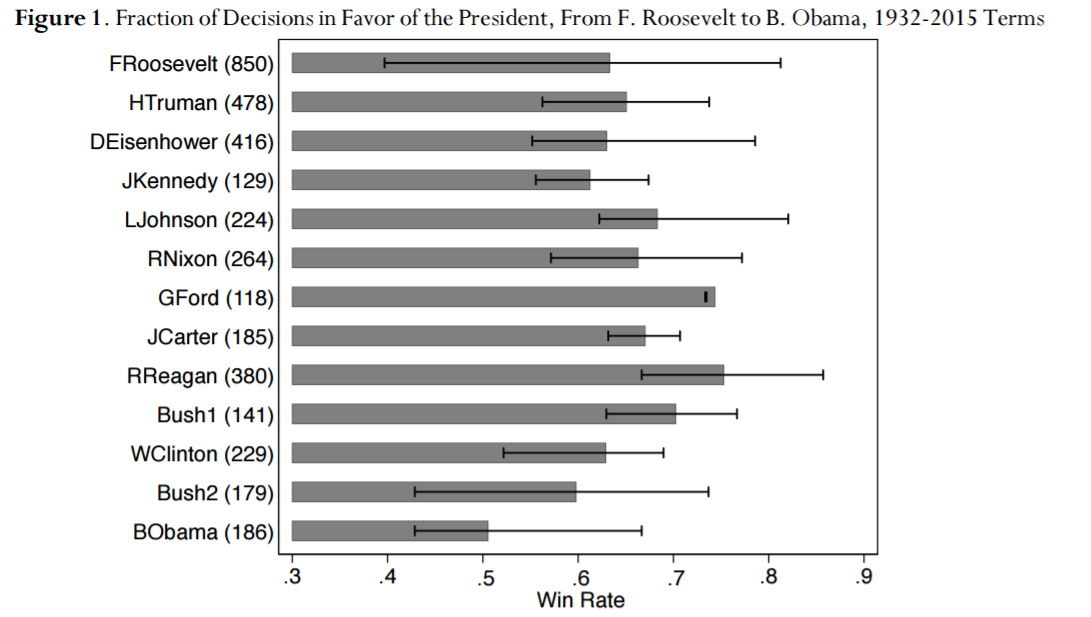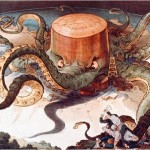Last night, my wife and I debated how Trump would react to Gorsuch’s statement that Trump’s attacks on the judiciary were “demoralizing and disheartening.” There seemed to be only two possibilities: say nothing or rebuke his own appointee. Trump, not for the first time, flummoxed both of us. He instead called the senator who reported the comments a liar, even though a White House staffer had confirmed them.
This effort to cut the Gordian knot accomplishes nothing. Democratic senators will ask Gorsuch again and again at his confirmation hearings whether he said these words or not. Gorsuch will be forced to say that he did (and, I hope, will go farther and say that he condemns Trump’s statements). Trump will be forced once again to take a position on his nominee, either acquiescing with silence in his own nominee’s repudiation of Trump’s behavior, or attacking Gorsuch head on rather than (as I interpret Trump’s tweet) indirectly. (“He couldn’t have said that about me; therefore, the senator must be lying.”)
It’s worth thinking about the possible calculus that would lead to withdrawal of the nomination. More informed people than I declare such a course of action impossible. The political damage would be immense. But it would have some logic, at least under the non-Euclidean principles of the Trumpian universe.
1. Trump demands loyalty, and punishes, with overwhelming force, those who betray him.
2. Trump could easily replace Gorsuch with Pryor or another conservative, appeasing the Federalist Society-types and evangelicals who seek a justice in the mold of Scalia.
3. Having taken the political hit from withdrawing his own nominee, Trump’s threat to treat any future nominee in a similar way will be extremely credible.
4. Future nominees will keep mum about Trump’s attacks on the judiciary in order to avoid having the prize taken away from them, which will reinforce Trump’s goal—to damage the credibility of the judiciary as a whole. Calculating that Republican senators will confirm them whatever they say, future nominees will act accordingly.
Other commentators have pointed out that Trump has let his other nominees contradict him without retaliating against them. Mattis, for example, rejected Trump’s embrace of torture, and Trump mildly commented that he will defer to Mattis’ greater expertise.
But circumstances are different, or appear so. If Trump seeks to bend the judiciary to his will, then he will not be able to tolerate a dissenter at the top of the hierarchy. Trump has not attacked the military. And one more thing. All presidents—not just Trump—expect loyalty from the justices that they appoint with respect to the projects and programs of most importance to the president. Has it occurred to Trump that Gorsuch may be the tie-breaker if Washington v. Trump reaches the Supreme Court after Gorsuch takes office?
Update: If the report below is correct, Gorsuch will try to make things easier for Trump by insisting that he was speaking in generalities (“the importance of an independent judiciary”) and not about Trump in particular (“a political matter” that a judge cannot comment on without violating the Code of Ethics”).
Gorsuch clarifies what he’s been saying in private conversations, via a statement from Kelly Ayotte, who is helping Trump get him confirmed. pic.twitter.com/4dzrI5sPpt
— Jennifer Jacobs (@JenniferJJacobs) February 9, 2017

